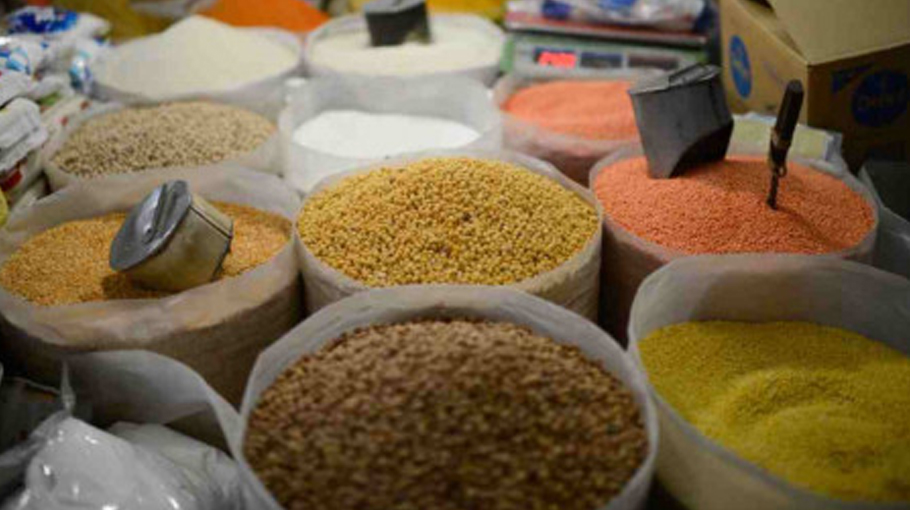Govt intensifies drive against market syndicates

As per the government’s pre-election pledges, concerned ministries and agencies are conducting drives to crack down on syndicates who allegedly control commodities prices in the markets.
The syndicates that have been manipulating commodity prices over the years, continue to illegally manipulate prices of commodities despite the ongoing drive across the country. After forming the new cabinet, different ministers, state ministers, government agencies and other organizations have enhanced their vigilance to punish such syndicates.
Throughout the Aman season, there has been an abrupt surge in the market price of rice. To address this issue, the Directorate of Food and various government organizations have initiated comprehensive surveillance and operations across the country.
Despite the absence of fines during the initial four days in the Dhaka markets, the mobile court imposed penalties on businesses on the fifth day (January 23), citing various irregularities in departmental areas. Consequently, approximately Tk 22 lakh in fines were collected from the traders during the fifth day of the operation.
On January 28, the food ministry carried out mobile court operations in various markets across eight districts. During the drives, 15 organizations were penalized, resulting in a collection of fines totaling Tk 51,700. Similarly, on January 25, a total of 31 organizations were fined and a total of Tk 6,35,500 were collected as penalties.
On the other hand, the Directorate of National Consumers’ Rights Protection (DNCRP) is also conducting a drive against illegal hoarders based on consumer complaints. Since its inception till January 15, the directorate has collected a fine of more than Tk 120 crore.
However, to make the ongoing drive a success, the government has cancelled weekly holidays of all staff members and left those who are engaged in conducting the drive.
In a notice signed by Md. Monirul Islam, the deputy director of the Directorate General of Food, it was announced on Sunday that market monitoring officials are required to be present at their workplaces every day, including weekends and public holidays, until further notice. This directive is part of the ongoing efforts to sustain the campaign against illegal stocking.
Despite the ongoing drive, the unscrupulous traders became active again when the holy month of Ramadan was approaching. But the government statement is solid, most of the essentials of Ramadan have already been stocked to maintain a smooth supply in the markets.
Prime Minister’s Adviser Salman F Rahman on Sunday said that there will be no shortage of consumer goods in the coming Ramadan. The price of goods will not increase during Ramadan. India will export Ramadan essentials to Bangladesh.
State Minister for Commerce Ahsanul Islam Titu has said, “We have discussed with everyone including importers, local producers, agriculture department, food department, fisheries and animal resources department. They said they have enough stock for the Ramadan. In addition, there is a stock of daily necessities for the next three months.”
“Prime Minister has asked us to continue the vigilance so that no one can artificially increase prices by hoarding. Stricter action will be taken against them. Market surveillance has already started,” added the state minister.
Finance Minister Abul Hasan Mahmud Ali said that honest businessmen will be awarded while strict measures will be taken against unscrupulous traders.
Directorate of National Consumer Rights Protection Director General AHM Shafiquzzaman in his latest drive has ensured that they are on the field to catch the vested interests who hike essential prices through Short Message Services (SMS).
He said, “Rice markets like essentials are also destabilized by SMS. We are taking action in every upazila and district against those who are doing this. In other words, there is a syndicate who are helping each other to increase essential prices, we will not allow to continue such anarchy- these will be stopped.”
On the other hand, the High Court on Sunday directed the commerce ministry to form a high-powered committee to investigate the increase in the price of agricultural products.
Incidentally, the market for daily commodities including onions, eggs and potatoes has been on the rise for several months. Although there is no shortage in the market, potatoes are being sold at prices 200 per cent higher than the cost of production. Whereas at this time last year, the price of potato was Tk 25 to Tk 30 per kg. So far this year, the wholesale price of potato per kg has dropped to Tk 40 from Tk 42.
According to the information, farmers have spent Tk 14 to Tk 16 per kg in potato cultivation this season. On the contrary, it is being sold at the wholesale level at three times the price by adding the dividend portion.
The price of onion has also gone up. On Friday, onions were sold at Tk 80 to Tk 90 per kg in the capital market.
Again, just a week after the election, the wholesale price of rice has increased from Tk 150 to Tk 400 per sack (50 kg).





